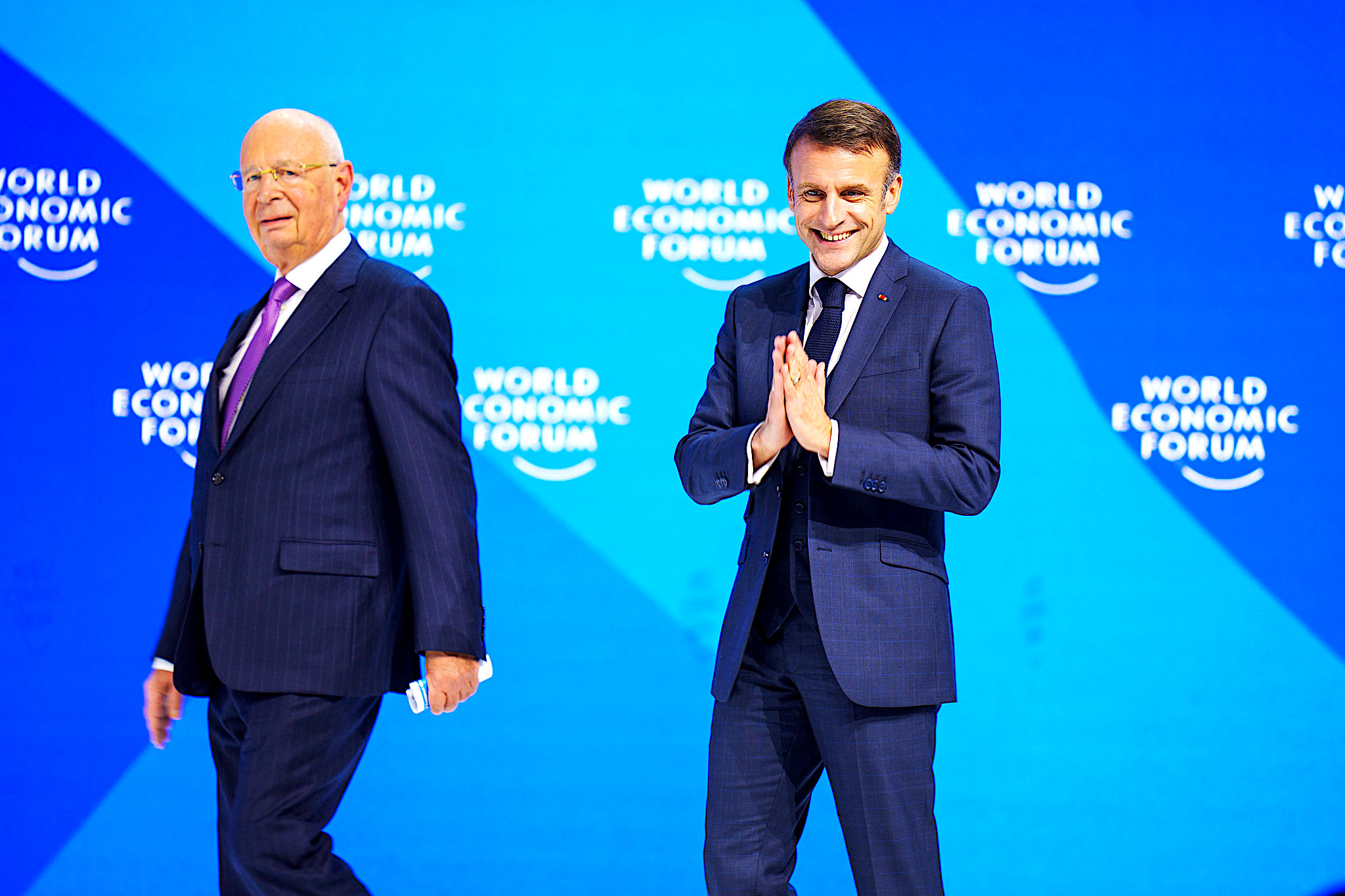C.J. Polychroniou reflects on the revival of an anti-fascist alliance in France amid a brutal neoliberal status quo.

Celebrations on the Place de la République in Paris on July 7, after a coalition of leftist forces in the New Popular Front, or NFP, took first-place in the elections. (Braveheart, Wikimedia Commons, CC BY-SA 4.0)
By C.J. Polychroniou
Common Dreams
 Far-right forces have gained ground across Europe, particularly in Austria, France, Germany, and the Netherlands.
Far-right forces have gained ground across Europe, particularly in Austria, France, Germany, and the Netherlands.
In fact, the Netherlands has a new government, a coalition between far right and right, and the far right came first in the first-round of France’s snap election.
But fearful of the prospect of a neo-fascist and xenophobic party in government, French voters came out in record numbers and rallied not behind Ensemble — the centrist coalition led by President Emmanuel Macron — but behind the coalition of left forces calling themselves the New Popular Front (NFP), delivering in the end a blow to Marine Le Pen’s National Rally (RN) which had made historic gains in the first round and topped the poll with 33.15 percent of the votes cast. NFP came in first in the run-off election, with 188 seats, but falling short of majority.
France’s snap parliamentary election results help us to make sense of the surge of the far right and offer valuable lessons for the left all over the world.
First, it is crystal clear that the main reason for the rise of Europe’s far right, authoritarian, and ethnonationalist forces is the status quo of neoliberal capitalism.
The neoliberal counterrevolution that begun in the early 1980s and undermined every aspect of the social democracy model that had characterized European political economy since the end of the Second World War has unleashed utterly dangerous political forces that envision a return to a golden era of traditional values built around the idea of the nation by fomenting incessant and socially destructive change.

Klaus Schwab, World Economic Forum founder, and Macron at the WEF annual meeting in Davos, Switzerland, on Jan. 17. (World Economic Forum / Boris Baldinger, CC BY-NC-SA 2.0)
True to its actual aims and intent, neoliberalism has exacerbated capitalism’s tendency to concentrate wealth in the hands of fewer and fewer, reduced the well-being of the population through mass privatization and commercialization of public services, hijacked democracy, decreased the overall functionality of state agencies, and created a condition of permanent insecurity.
Moreover, powerful global economic governance institutions — namely, the unholy trinity of the World Bank, the International Monetary Fund and the World Trade Organization — took control of the world economy and became instrumental in the spreading of neoliberalism by shaping and influencing the policies of national governments. It is under these conditions that ethnonationalism, racism, and neofascism resurfaced in Europe, and in fact all over the world.
In France, the rise of the far right coincided with President François Mitterand’s turn to austerity in the 1980s as his government fell prey to the monetarist-neoliberal ideology of the Anglo-Saxon world. Once Mitterand made his infamous neoliberal turn, the rest of the social democratic regimes in southern Europe (Greece under Andreas Papandreou, Italy under Bettino Craxi, Spain under Felipe Gonzalez, and Portugal under Mario Soares) tagged along, and the eclipse of progressivism was underway.

Mitterrand, on right, with U.S. President Ronald Reagan during D-Day observations at Omaha Beach in Normandy on June 6, 1984. (James Cavalier, U.S. Army, Wikimedia Commons, Public domain)
Less than two decades later, reactionary political forces had emerged throughout Europe as extreme neoliberal economic policies had paved the way for the emergence of political tendencies with an eye to exploiting the catastrophic social and economic impacts of neoliberalism by tapping into a huge reservoir of public anger and discontent with the establishment. Indeed, as neoliberalism tightened its grip on domestic society, far right forces gained more ground. The surge of Marine Le Pen’s RN occurs against the backdrop of Macron’s obsession with converting France into a full-fledged neoliberal society.
A crucial lesson offered by the results of France’s snap election (as well as by Labour’s victory in U.K.) is that economics remains the rule of the day. Political forces that seek to promote multiculturalism and social rights while pushing at the same time the neoliberal economic agenda will, in the end, get the short end of the stick.
Initially, Macronism was a strategy of trying to appeal to a wide range of center-left and center-right voters by defending secular social rights and even making gestures to LGBTQ people but always with an eye to transforming the social contract and freeing up the “energy of the workforce.”
Macron’s “progressive liberalism” philosophy worked up to a point. It backfired in a big way along the way when workers, farmers, and minority groups realized that their economic future was at stake by Macron’s pro-market policies — and that was clearly far more important to them than concerns over social issues and even the environment itself.
The “yellow vest” movement that rocked Macron’s presidency in 2018 and left an “indelible mark” on French politics was the first indication that any set of government reforms that carried a disproportionate impact on the working and middle classes was going to be severely challenged.

Yellow vest demonstrators in Paris in December 2018. (Olivier Ortelpa, Wikimedia Commons, CC BY 2.0)
In the end, Macronism even lost the support it initially had from women’s and LGBTQ organizations, and not simply because Macron’s stance on social policies hardened along the way as part of an opportunistic and desperate attempt on his part to stir conservative voters away from the arms of the far right.
It is worth pointing out here that, unlike most social movements which are male-dominated, the “yellow vest” movement was distinguished by the “high proportion of women” who took part in the protests. It was economics that drove French women out into the streets, demonstrating against Macron government’s unjust tax reform measures.
Again, the lesson here is that voters are unlikely to be deceived by the sort of political rhetoric that emphasizes diversity, multiculturalism, and environmental concerns while policies are being pursued in favor of a brutal neoliberal economic setting.
Social rights under neoliberalism is a mirage.
This is a critical lesson for all left forces in an age in which multiculturalism and the politics of identity play such a prominent ideological role. We see the counter effects of this ultimately “pro-capitalist-stratagem” in the U.S. where voters without college degrees, which amount to over 60 percent of the population, are overwhelmingly in former President Donald Trump’s camp. A similar tendency can be seen in the Latino community as a growing segment of Hispanic voters are joining Trump’s GOP party.
For the benefit of political expediency and ideological integrity alike, the left should stick to its universalist traditions while remaining of course sensitive to diversity and particularism. But it has no business playing the game of identity politics that has become the hallmark of corporate capitalism and of the liberal political establishment. Last thing we need is a cultural and post-material left morphed into a movement vying for space in a capitalist dominated universe.
More important, as the unique experience of the formation of a coalition of leftist parties in France for the snap parliamentary election attests, the left’s best hope for making major inroads in today’s Western societies, which are unquestionably highly complex and diversified, is by introducing and promoting an attractive yet realistic economic agenda that addresses the immediate concerns of average people but without losing sight of the broader objective of the leftist vision which is none other than social transformation.
The “shocking” success of the New Popular Front in the run-off election in France did not materialize simply because French voters wanted to halt the rise of the far right to power, which is the mainstream interpretation. French voters backed NFP for two key reasons: first, because they finally saw the left leaving behind factionalism and, second, because they were lured by its radical manifesto.
For the first time since the 1930s, not only has an anti-fascist alliance been revived in France but there is now hope for the future of the left because of its economic vision, assuming of course that the left can stay united beyond the election. And this is perhaps the greatest lesson leftist forces should draw from the French snap elections: a united left is a formidable opponent that cannot only halt the surge of neo-fascism but can also offer real hope for a humane and sustainable future.
C.J. Polychroniou is a political economist/political scientist who has taught and worked in numerous universities and research centers in Europe and the United States. His latest books are The Precipice: Neoliberalism, the Pandemic and the Urgent Need for Social Change (A collection of interviews with Noam Chomsky; Haymarket Books, 2021), and Economics and the Left: Interviews with Progressive Economists (Verso, 2021).
This article is from Common Dreams.
Views expressed in this article and may or may not reflect those of Consortium News.

Does the USA ever learn anything except buy, buy, buy, spend, spend, spend??? Learn from France? Please!
Although expressed in far more nuanced terms than dogmatic leftist theory, I still hear echoes of the insistence that we “diversities” shut up while some self identified vanguard does what’s best for the ignorant working class. Usually white men of the educated upper middle class elite who’ve never had to fight to be recognized. Nor for that matter ever picked up a tool in their lives.
I was a blue collar worker for 28 years and I’m LGBTQ as well as BIPOC. Go tell my Native reservation cousins and distant relatives in French Canada that the long struggle to preserve their cultures is a mere diversion. Or that an intimate, lived connection to the land is just silly “environmentalism.” Tell the people I worked with that we aren’t capable of understanding the econ system or of organizing ourselves. My grandfather the Wobbly (I.W.W.) saw through the leftist form of top down elitism more than a century ago.
That the administrative and professional 10-20 % whom the U.S. D party and Labour in the U.K. etc. actually represent speak of inclusivity does not negate the idea as if an ad hominem argument. We among the suspect letters can see they mean they’re fine with anyone regardless of gender or color or sexual orientation as long as that person has the requisite neolib elite Ivy or Oxbridge credentials.
I was trained in the early ’70s by leftists who’d been union organizers in the ’30s. I never forgot their observation that “liberals are the ones who leave the room when the fight starts.” We of the working class rank and file know by bitter experience that they abandoned labor. We know they see us as a “basket of deplorables.”
There is more to reality than the Aristotelian either/or binary of Enlightenment thinking. It’s not with us or against us, true or false, good guy or bad guy. We live in a post Einstein world of relativity, uncertainty, and indeterminacy. It’s possible to be both/and–as I am.
So then the task is to build coalitions. Which is very hard work; I’ve run local political campaigns and did some labor organizing. We won because we had active rank and file members to draw on, as well as connections with other community organizations as allies. It was like a set of Venn diagrams–overlapping interests. We didn’t expect everyone to agree on everything. No exclusion by failure to fit within the bounds of narrow theoretical definitions.
You fail to mention the key reason for the NPF’s win, which was that basically although three parties should have competed for votes in the second round of legislative elections, the NPF and Macron’s party collaborated so that there were only two. Macron and the NPF pulled their candidates out of the race.
So rather than the NPF winning because they made a left coalition, Macron and the NPF won because they caught together to concentrate the votes which before had been split between their candidates.
The entire political establishment ganged up to prevent the RN from gaining a majority, and in the process prevented a majority from occurring at all.
The terms “left” and “right” are becoming increasingly irrelevant. For some reason, the so-called left has decided to align itself with the most reactionary and intolerant forces on the planet — namely militant Islam. The so-called right, on the other hand, is standing up for liberal values. You can call this “xenophobic” if you want to, but that only demonstrates your ignorance of what is actually happening in Europe. The left needs to wake up and reassess its worldview.
You clearly don’t know Islam that means that you probably have no idea that the West fought Sufi Islam by backing whahabi jihadists with the help of Saudi Arabia.Nasser and his socialist ideology of Arab Nationalism scared the West hungry for resources.You probably don’t know that Marine’s father Jean Marie was in Algeria and tortured a sum of Algerians.France has an horrible colonialist and neo colonialist past and it’s carching up to her.The far right doesn’t stand for any liberal values,only dreaming of a past where they were stealing and killing at will in their colonies.
This has nothing to do with anything I said but thanks for the reply.